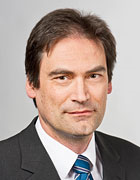IoT Empowered Multi-Energy Systems
Description
To achieve CO2 neutral energy system, many loads are being electrified. Nonetheless, 100% electrification of all energy consumption might not be the ultimate solution or the most efficient way of energy utilization. For instance, there is large demand of heat, which if supplied directly by the heat in the nature will be much more efficient than a heat-electricity-heat multi-stage conversion. Different energy vectors have different dynamics and energy density. Therefore, if they are properly bridged together, there is huge potential to make the most of energy storage in a very cost-effective way, e.g., heat pumps have a much lower cost than batteries with similar energy capacity. IoT would be a key technology to connect multi-energy vectors together, and coordinate them properly to achieve higher energy efficiency and lower cost of energy.
Chairs
Aaron Ding, TU Delft and Adjunct Professor and University of Helsinki
 Dr. Aaron Ding is leading the Cyber-Physical Intelligence (CPI) Lab, tenured Asst. Professor at TU Delft and Adjunct Professor (permanent) in Computer Science at University of Helsinki. Prior to TU Delft, he has worked at TU Munich, Columbia University, and University of Cambridge. He received his Ph.D. degree from the Department of Computer Science (Birthplace of Linux), University of Helsinki, supervised by Prof. Sasu Tarkoma and Prof. Jon Crowcroft. Funded by Nokia Foundation, vital part of his Ph.D. programme was completed at the University of Cambridge, U.K., and Columbia University, USA. He currently leads the H2020 SPATIAL project (2021-2024) on trustworthy AI as the consortium coordinator, and as PI for the esteemed Marie Curie ITN project (2020-2024) on sustainable edge AI. He has 50+ peer reviewed publications and his work was awarded the best paper of ACM EdgeSys, ACM SIGCOMM Best of CCR, and the esteemed Nokia Foundation Scholarships.
Dr. Aaron Ding is leading the Cyber-Physical Intelligence (CPI) Lab, tenured Asst. Professor at TU Delft and Adjunct Professor (permanent) in Computer Science at University of Helsinki. Prior to TU Delft, he has worked at TU Munich, Columbia University, and University of Cambridge. He received his Ph.D. degree from the Department of Computer Science (Birthplace of Linux), University of Helsinki, supervised by Prof. Sasu Tarkoma and Prof. Jon Crowcroft. Funded by Nokia Foundation, vital part of his Ph.D. programme was completed at the University of Cambridge, U.K., and Columbia University, USA. He currently leads the H2020 SPATIAL project (2021-2024) on trustworthy AI as the consortium coordinator, and as PI for the esteemed Marie Curie ITN project (2020-2024) on sustainable edge AI. He has 50+ peer reviewed publications and his work was awarded the best paper of ACM EdgeSys, ACM SIGCOMM Best of CCR, and the esteemed Nokia Foundation Scholarships.
Vedran S. Perić, Research Center for Combined Smart Energy Systems (CoSES), TUM, Munich
 Dr. Vedran S. Perić received the master’s degree from the University of Novi Sad, Serbia, and the Ph.D. degree from the KTH Royal Institute of Technology, Stockholm in 2016.
Dr. Vedran S. Perić received the master’s degree from the University of Novi Sad, Serbia, and the Ph.D. degree from the KTH Royal Institute of Technology, Stockholm in 2016.
He was a Research and Teaching Assistant with the University of Novi Sad and Visiting Researcher with the Delft University of Technology. He held positions of Senior Power System Engineer with GE Grid Solutions Research and Development Department, Senior Power System Consultant at GE Energy Consulting, and as a Senior Business Analyst with Regional Security Coordinator, TSCNET Services GmbH. He is currently a Head of Research Center for Combined Smart Energy Systems (CoSES) at the TUM Munich School of Engineering.
His research interests include a wide range of topics related to power systems dynamic stability, operation and control of smart grids, with the particular focus on integration of electric systems with district heating/cooling grids.
Dr. Zian Qin, Delft University of Technology, Delft, Netherlands.
 Dr. Zian Qin, IEEE senior member, is an Assistant Professor in Delft University of Technology, Delft, Netherlands. In 2014, he was a Visiting Scientist at Aachen University, Aachen, Germany. From 2015 to 2017, he was a Postdoctoral Research Fellow in Aalborg University. His research interests include wide bandgap devices, power electronics based grid and Power2X. He serves as the technical programm chair of IEEE-ISIE 2020, technical program co-chair of IEEE-COMPEL 2020, industrial session co-chair of ECCE-Asia 2020.
Dr. Zian Qin, IEEE senior member, is an Assistant Professor in Delft University of Technology, Delft, Netherlands. In 2014, he was a Visiting Scientist at Aachen University, Aachen, Germany. From 2015 to 2017, he was a Postdoctoral Research Fellow in Aalborg University. His research interests include wide bandgap devices, power electronics based grid and Power2X. He serves as the technical programm chair of IEEE-ISIE 2020, technical program co-chair of IEEE-COMPEL 2020, industrial session co-chair of ECCE-Asia 2020.
Paper Scheduling
- Authors of 5204 (25 mins including Q&A)
- Authors of 5238 (25mins)
- Authors of 5245 (25 mins)
- Invited speaker: Prof. Thomas Hamacher (35 mins + 10 mins Q&A)
Speakers
Thomas Hamacher, Technical University of Munich
 Prof. Hamacher is a Full Professor for Renewable and Sustainable Energy Systems and Director of Munich School of Engineering at the Technical University of Munich.
Prof. Hamacher is a Full Professor for Renewable and Sustainable Energy Systems and Director of Munich School of Engineering at the Technical University of Munich.
Prof. Hamacher studied physics in Bonn, Aachen and Columbia University (New York), and received a doctorate from the University of Hamburg for his work on baryonic beta decay. Professor Hamacher has been with the Max Planck Institute for Plasma Physics since 1996, most recently as a head of the Energy and System Studies Group. In 2013, he was appointed as a Full Professor for Renewable and Sustainable Energy Systems. Prof. Hamacher is a member of the Environmental Science Centre (WZU) of the University of Augsburg and the Energy Working Group of the European Physical Society (EPS).
His research is focused around energy and systems analysis, focusing on urban energy systems, the integration of renewable energy into the power grid and other energy sectors through sector coupling. He also focuses on the methods and fundamentals of energy models and new optimization methods. He has published more than 130 articles in the world leading journals.


